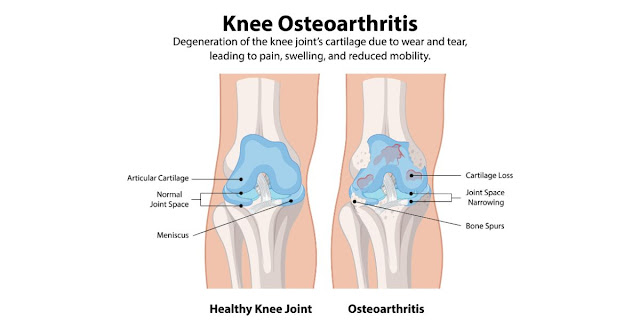Can breast cancer recur after reconstruction surgery?
Are you or someone you know concerned about breast reconstruction and its impact on cancer recurrence? You’re not alone—this is a common question among patients considering breast reconstruction after a mastectomy or breast-conserving surgery. As experienced breast cancer and oncoplasty specialists, we often address these concerns.
Does Breast Cancer Come Back After Reconstruction?
Many patients wonder if breast reconstruction increases the risk of cancer recurrence. The clear answer is no—there is no evidence that breast reconstruction raises the likelihood of breast cancer returning.
Whether it's a partial or full reconstruction, the risk of recurrence remains the same. It's important to note that breast reconstruction is a separate procedure from breast cancer treatment itself.
What Does This Question Actually Mean?
After a mastectomy or breast-conserving surgery, many patients choose breast reconstruction, either partial or complete. A common misconception is that breast reconstruction increases the risk of cancer returning. However, research and studies confirm that breast reconstruction does not affect the likelihood of cancer recurrence.
How Does Adjuvant Treatment Help Prevent Cancer Recurrence?
The main concern for cancer patients is often the risk of cancer coming back. To reduce this risk, adjuvant treatments such as chemotherapy, radiation, or hormonal therapy are frequently recommended based on the specific case.
These treatments aim to lower the chances of recurrence, while breast reconstruction focuses on restoring the breast's appearance and improving the patient’s confidence. Importantly, breast reconstruction does not raise the risk of cancer returning.
Breast Reconstruction Surgery
What Are the Benefits of Breast Reconstruction?
Breast reconstruction offers more than just the physical restoration of the breast. It greatly enhances a patient’s self-esteem and body image. Many patients feel more comfortable in their clothing and even in swimsuits after reconstruction.
The psychological benefits are also significant, as reconstruction helps patients regain a sense of normalcy and confidence. Living with dignity is essential, and breast reconstruction plays a vital role in helping many patients achieve that.
Should You Consider Breast Reconstruction?
If you’re undergoing breast cancer surgery, it’s important to discuss breast reconstruction options with your surgeon. Understanding the benefits and the procedure can guide you in making an informed decision.
Remember, breast reconstruction does not increase the risk of cancer recurrence. The decision to pursue reconstruction should be based on your personal preferences and how it might positively affect your quality of life.
3 Common Myths Busted
Myth #1: Breast Reconstruction Increases Cancer Risk
There is no scientific evidence indicating that breast reconstruction raises the risk of cancer recurrence. This misconception can cause unnecessary worry and deter patients from considering reconstruction.Myth #2: Reconstruction Complicates Cancer Detection
Some fear that reconstructed breasts might make it harder to detect cancer. With regular follow-up appointments and advanced imaging techniques, cancer recurrence can be detected early, even after reconstruction.Myth #3: Reconstruction Is Only About Appearance
While restoring the breast’s appearance is important, breast reconstruction also offers psychological benefits, helping patients feel whole again and boosting their self-image and confidence.
What to Expect from the Reconstruction Process?
Breast reconstruction may vary based on the type of surgery and individual circumstances. Here’s a brief summary of what to anticipate:
Initial Consultation
Your surgeon will discuss various reconstruction options, expected outcomes, and potential risks during your first consultation.Surgical Procedure
Breast reconstruction can be performed immediately after mastectomy or at a later time, depending on the patient’s health and preference.Recovery Period
Recovery time varies, but most patients are able to resume normal activities within a few weeks. Your surgeon will provide detailed post-operative care instructions for a smooth recovery.Follow-Up Care
It's important to have regular follow-up appointments to check on your reconstructed breast and ensure everything is healing well without any complications. These visits also allow you to address concerns and explore additional treatments if necessary.
Ready to Move Forward with Your Breast Reconstruction Journey?
Trust your care to Dr. (Surg Lt Cdr) Anushree Vartak, one of the top best breast cancer doctor in Ghaziabad. With his expertise, you’ll receive personalized support through every stage—from your initial consultation to recovery and follow-up care. Don’t wait—call us now and begin your journey to healing with confidence!
Make the Right Choice
Deciding to undergo breast reconstruction is a deeply personal decision. It’s important to make this choice after thoughtful consideration and consultation. Our experts are here to provide all the information you need, so feel free to reach out anytime for guidance.
Final Thoughts
Breast reconstruction offers numerous physical and psychological benefits, helping you regain confidence and improve your quality of life. Most importantly, it does not increase the risk of breast cancer recurrence.
This procedure empowers you to feel like yourself again and live with freedom and self-expression. If you’re considering breast cancer surgery, we’re here to guide you every step of the way. Talk to your surgeon about your reconstruction options to make a well-informed decision.
Keep in mind, it’s your right to live with dignity and confidence. Don’t let myths or misconceptions take that away from you. Prioritize your physical and mental well-being, and choose the path that allows you to enjoy life to the fullest.



Comments
Post a Comment